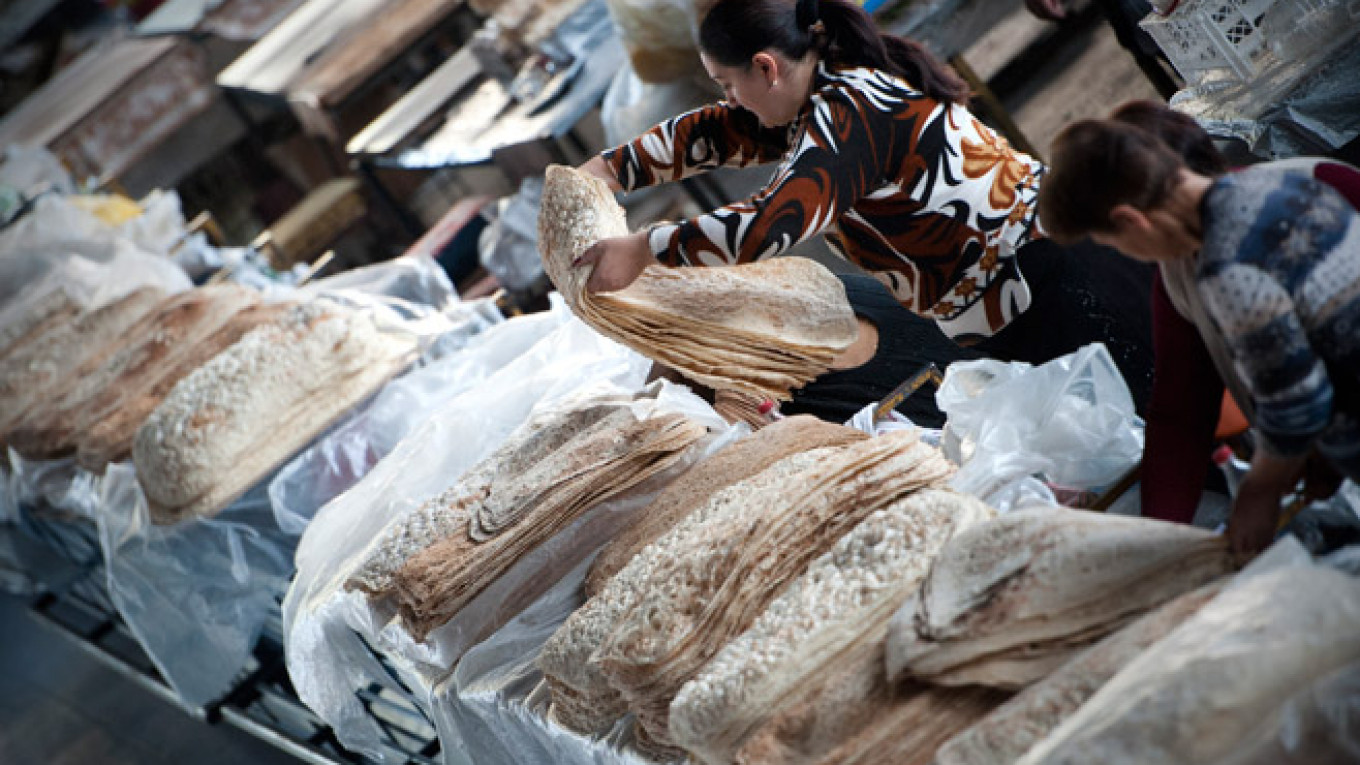The UNESCO cultural and scientific organization has decided to include Armenian flatbread on its intangible cultural heritage list, recognizing the importance of the foodstuff to the country's inhabitants.
Lavash, a staple of Armenian cuisine, is a type of soft and very thin flatbread that can be consumed as a wrap for cheese, meat or vegetables. It is also popular throughout the South Caucasus, and in Iran and Turkey.
According to a note on the UNESCO website, preparation of lavash "requires great effort, coordination, experience and special skills" and "strengthens family, community and social ties."
Lavash was accepted onto the list on Wednesday, with the UNESCO organization saying on its site that it acknowledged "the preparation, meaning and appearance of [the] traditional bread as an expression of culture in Armenia."
The Intangible Cultural Heritage Lists, a daring attempt to recognize and preserve immaterial culture, have been compiled since 2008, and entries from 103 countries are currently recognized by UNESCO.
Examples include Argentinian tango, Mongolian calligraphy, Middle Eastern falconry, Vanuatu sand paintings and even the Mediterranean diet.
The lavash puts Armenia, a small, ancient South Caucasus nation of 3 million, ahead of much of the pack with a total of four entries on the Intangible Cultural Heritage List.
Other Armenian entries recognized by UNESCO include the reed wind instrument duduk, the performance of the medieval epic "David of Sassoon," and the art of stone cross making.
Russia has only two items on the list: The culture of the Semeiskiye Old Believer sect, and the Yakut heroic epic "Olonkho," which sees songs comprising up to 36,000 verses performed by singers over the course of several nights.
China is the runaway leader with 38 entries, followed by Japan (22) and Croatia (14). Neither the U.S. nor Britain have a single item of intangible heritage to contribute so far, according to UNESCO.
See the Photo Galleries:
A Message from The Moscow Times:
Dear readers,
We are facing unprecedented challenges. Russia's Prosecutor General's Office has designated The Moscow Times as an "undesirable" organization, criminalizing our work and putting our staff at risk of prosecution. This follows our earlier unjust labeling as a "foreign agent."
These actions are direct attempts to silence independent journalism in Russia. The authorities claim our work "discredits the decisions of the Russian leadership." We see things differently: we strive to provide accurate, unbiased reporting on Russia.
We, the journalists of The Moscow Times, refuse to be silenced. But to continue our work, we need your help.
Your support, no matter how small, makes a world of difference. If you can, please support us monthly starting from just $2. It's quick to set up, and every contribution makes a significant impact.
By supporting The Moscow Times, you're defending open, independent journalism in the face of repression. Thank you for standing with us.
Remind me later.






